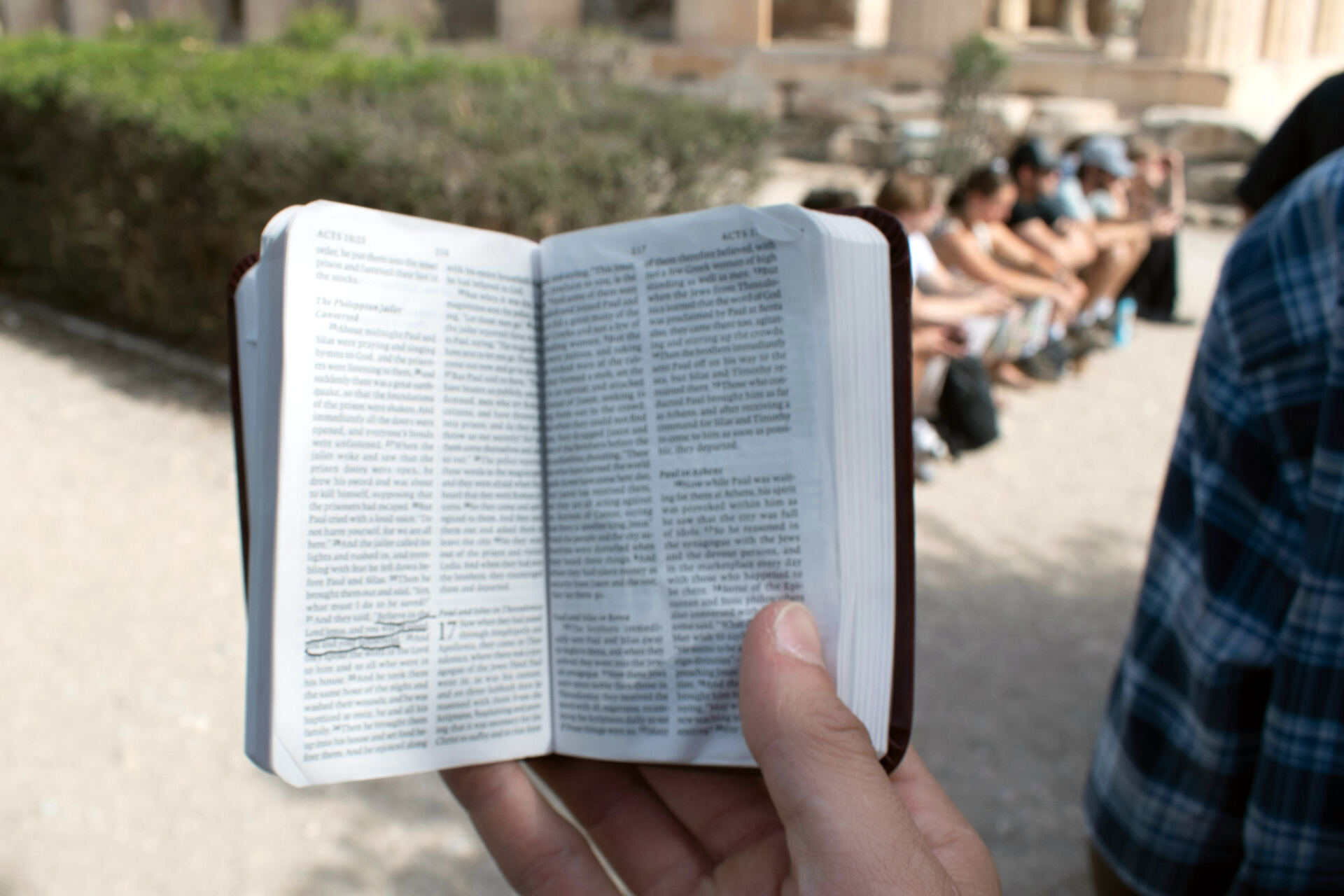Sometimes the joy of Christmas seems overshadowed by the encroaching darkness of this world.
Sometimes the joy of Christmas seems overshadowed by the encroaching darkness of this world.
“[W]e did not plan to celebrate Christmas during a cruel war, but God in his perfect will allowed it to happen,” an Israeli friend and pastor wrote in an update.
Rather than anticipating peaceful holidays in the land of Christ’s birth, he and other believers are now providing supplies for those in their community lacking necessities—Jews and Arabs alike—and comforting those overwhelmed with grief and fear as battles in the Middle East rage on.
Meanwhile in Ukraine, believers prepare for their third Christmas celebrated under brutal invasion. There, too, families remain separated by war, and many face the cold of winter without sufficient resources or infrastructure.
We often feel a disconnect between the season of glad tidings and the circumstances we witness and experience in our lives and ministries on this fallen earth. Conflict, opposition, financial hardship, family struggles, distance from loved ones, endless responsibilities, illness, or loss weigh heavy on our shoulders. When suffering prevents us from feeling the happiness we’ve grown to expect from the holiday season, it can be easy to fall into guilt or discouragement. But the full panorama of the nativity includes both great joy and tremendous sorrow, and our Messiah—through the full extent of his humanity and his divinity—offers hope in the darkness.
[T]he full panorama of the nativity includes both great joy and tremendous sorrow, and our Messiah—through the full extent of his humanity and his divinity—offers hope in the darkness.
Joy and Sorrow in the Christmas Narrative
The account of Simeon in Luke’s gospel illuminates the wonder and sorrow surrounding the Savior’s birth. Introduced by Luke as righteous and devout, Simeon lived in Jerusalem “waiting for the consolation of Israel” (2:25 ESV).
He did not wait alone. For generations, the Jewish people had longed for deliverance. They yearned for relief during the decades of Babylonian exile, Greek subjugation, and finally, after a brief hopeful period of national autonomy, oppressive Roman rule. Though 400 years had passed since the last prophet had delivered the word of the Lord, the idea of a coming Messiah as a political, military, and religious leader had taken root in the dusty earth of first-century Israel.
Into this culture, the Christ child entered the world. Matthew and Luke describe the shocking angelic annunciations to Mary and Joseph, the fear of social shame for Mary as an unwed expectant mother, the joy of elderly Elizabeth’s conception of John the Baptist, and the arduous journey to Bethlehem to be registered.
And then Mary gave birth. The Son of God lay fully human in a manger. As Mary gazed upon her infant son, his tiny fingers extended, his mouth opened in newborn cries, and those swaddling clothes undoubtedly became soiled. He lay as a helpless baby—even while visited by shepherds directed by angelic hosts.
In nearby Jerusalem, Simeon waited faithfully for God’s deliverance. The Holy Spirit had revealed that he would not see death before he saw the Lord’s Christ (2:26). We do not know the extent to which Simeon was aware of the miraculous circumstances of Jesus’ birth, but, when Joseph and Mary brought him into the temple, he immediately recognized the infant’s divinity. Taking the child into his arms, he glorified God, exclaiming, “my eyes have seen your salvation that you have prepared in the presence of all people, a light for revelation to the Gentiles, and for glory to your people Israel” (2:30-32). The Messiah first promised at the fall of mankind had finally arrived to accomplish salvation.
But the narrative of Christ’s birth does not end with Simeon’s joyful declaration. Jesus, in his humanity, was born into a world overrun with sinful depravity and demonic forces. Even when he was but a small baby, his existence confronted the powers of hell. Matthew records that when wise men arrived to worship the child and bestow upon him gifts of gold, frankincense, and myrrh, they avoided Herod’s order to report his location. Joseph, warned by God in a dream, fled with his family to Egypt. Incensed with rage, Herod sent emissaries to massacre every precious infant and toddler boy under the age of two in Bethlehem and the surrounding region.
Matthew records the depth of the people’s despair, quoting Jeremiah: “Rachel weeping for her children; she refused to be comforted, because they are no more” (2:18).
Through the incarnation, Christ entered and experienced the suffering of our world. And throughout his earthly ministry, he defeated those same powers of sin and death, proclaiming good news to the poor, healing the sick, comforting the brokenhearted, and liberating those oppressed by demonic control.
Simultaneously, the Light of the World and the Good Shepherd was also the Man of Sorrows. He bore our griefs and carried our sorrows to the cross. In fulfillment of Isaiah’s prophecy, “he was pierced for our transgressions; he was crushed for our iniquities; upon him was the chastisement that brought us peace, and with his wounds we are healed” (53:5, emphasis added). Through his death, he offers life to all who believe. All of the pain, hardship, and suffering of this sin-scarred world collides with hope at the cross.
‘A Sign That Is Opposed’
Simeon’s blessing of the newborn Jesus also included a warning: “Behold, this child is appointed for the fall and rising of many in Israel, and for a sign that is opposed (and a sword will pierce through your own soul also), so that thoughts from many hearts may be revealed” (Luke 2:34-35).
Simeon foresaw that Jesus’ ministry would cause division by confronting people with the truth, inducing a decision to either accept or reject him. He would be opposed, leading to suffering not only for his mother and disciples during his earthly ministry, but for all believers following him on his mission to proclaim the gospel throughout the world. Simeon offers this message as preparation: by expecting opposition, believers can be emboldened to courageously, steadfastly contend for the faith. Undismayed by hostility, they can hold firm to the promise of Christ’s authority to accomplish his mission.
If we feel overwhelmed by suffering during this holiday season, let it drive us back to the account of Christ’s birth rather than hiding in feelings of shame. The narrative of Christmas—and its resolution in the cross—is expansive enough to contain all our human longings, pains, and joys.
And even as we mourn, let us fix our hope on the promise that Christ will come again, when at long last all will be made new and there will be eternal “glory to God in the highest, and peace among those with whom he is pleased” (Luke 2:14).
Prayer Requests:
- Pray for believers in the Middle East, Ukraine, and other locations facing war. Pray that they would find hope and strength in Christ, and pray as they serve the hurting around them.
- Pray for those experiencing pain, loss, or hardship during the holidays.
- Pray for local churches to follow Christ’s example in showing compassion and hope to those in their congregations and in their communities who are suffering.
Editor’s Note: This article was originally posted on December 12, 2023 as the third article in our Advent devotional series “Desire of the Nations” and has been updated for relevance.






